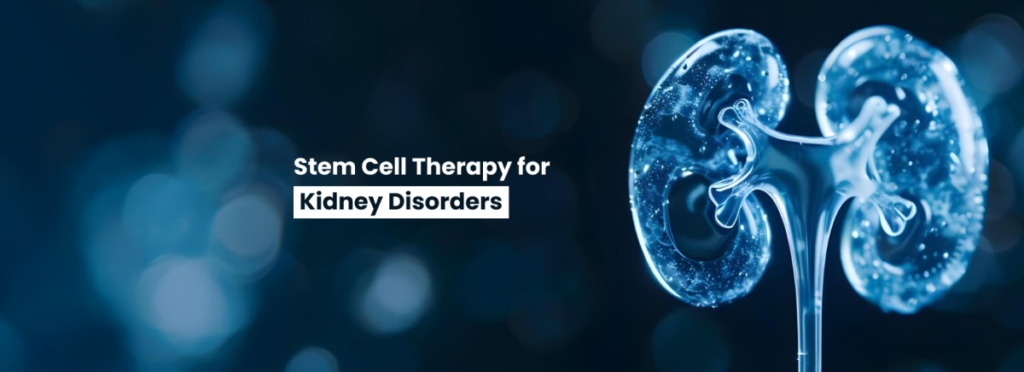
Stem cell therapy is rapidly emerging as a groundbreaking treatment for kidney disorders, offering a promising alternative to conventional methods such as dialysis and organ transplants. This innovative approach focuses on promoting tissue regeneration, allowing kidney function restoration, and offering significant relief from symptoms. As chronic kidney diseases (CKD) continue to affect millions globally, stem cell therapy provides a non-invasive, personalised, and potentially life-changing solution that improves both physical health and quality of life.
Learn More About Stem Cell Therapy for Kidney Disorders
If you’re interested in a detailed breakdown of how stem cell therapy works specifically for kidney treatments, click here to explore our dedicated page.
Understanding Stem Cell Therapy in Kidney Treatment
Stem cells are unique cells capable of differentiating into specialised cell types, including kidney tissue. In the context of kidney disorders, these cells have the potential to regenerate damaged renal tissues, offering a hopeful alternative to traditional treatments. By harnessing the regenerative properties of stem cells, medical professionals can address the underlying causes of kidney disease rather than merely managing symptoms.
How Stem Cell Therapy Works for Kidney Disorders
- Tissue Regeneration: Stem cells can be harvested from various sources, such as the patient’s own bone marrow or umbilical cord blood. Learn more about our kidney-focused stem cell therapy approach.
- Non-Invasive Approach: Unlike kidney transplants, which require surgery, and dialysis, which is time-consuming and uncomfortable, stem cell therapy is non-invasive. Patients typically undergo a simple infusion or injection procedure, minimising the physical burden and recovery time associated with more traditional treatments.
- Personalised Treatment Plans: One of the most significant advantages of stem cell therapy is its ability to provide tailored treatment. Each patient’s condition is unique, and stem cell therapy can be customised to address specific needs, potentially enhancing effectiveness and improving outcomes.
Benefits of Stem Cell Therapy for Kidney Disorders
- Reduction in Dialysis Dependence: For patients with severe kidney dysfunction, stem cell therapy offers the potential to reduce or eliminate the need for dialysis, which can significantly improve their daily quality of life.
- Enhanced Kidney Function: By restoring functionality to damaged kidney tissues, patients may experience a reduction in symptoms such as fatigue, swelling, and the need for medication to manage complications.
- Improved Quality of Life: Beyond physical health, stem cell therapy has the potential to alleviate psychological burdens associated with kidney disease, such as anxiety and depression linked to long-term medical interventions.
- Minimised Risks: Traditional kidney transplants come with risks such as organ rejection and the need for immunosuppressive drugs. Stem cell therapy, being minimally invasive, avoids many of these complications.
Challenges and Future Prospects
While stem cell therapy shows immense promise, it is not without its challenges. Research is ongoing to refine techniques, improve safety, and better understand the long-term effects of stem cell treatment for kidney disorders. Additionally, regulatory hurdles and the cost of therapy are considerations that need further development.
Nevertheless, the potential for stem cell therapy to transform the management of chronic kidney disease and provide a sustainable, non-invasive solution is a compelling reason for continued research and advancement in this field. With personalised approaches, reduced reliance on traditional medical interventions, and a focus on tissue regeneration, stem cell therapy holds great promise for improving the lives of those affected by kidney disorders.
